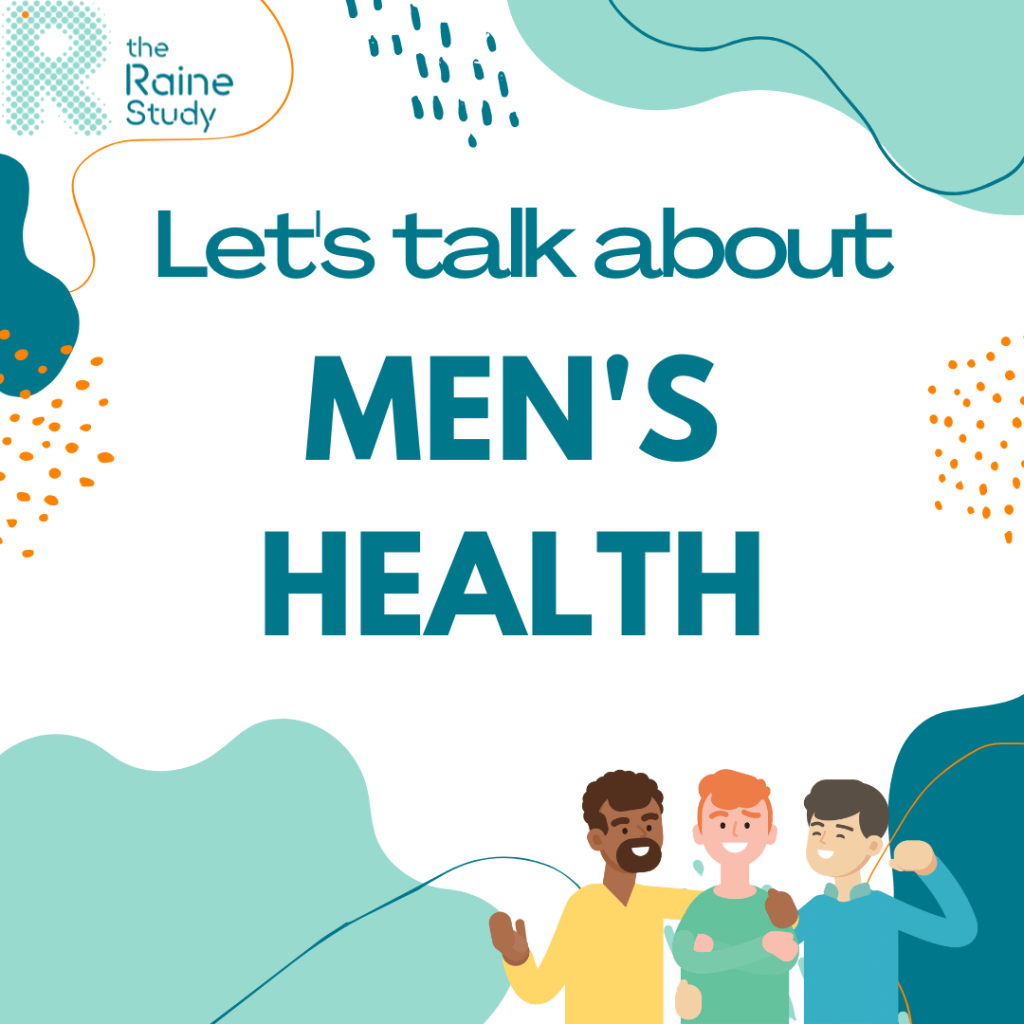Saturday 19 November is International Men’s Day, an occasion which is marked in around 80 countries worldwide as an opportunity to celebrate men, boys and those who identify as male in all their diversity.
The theme for International Men’s Day 2022 is “Celebrating Mateship”. Having mates – positive connections with family, friends, neighbours and work-mates – is just as important to the physical health of the males in our life as it is for their mental health. For boys and men, a lack of positive social connections can increase the risk of death more than such things as poor diet, obesity, alcohol consumption, lack of exercise, and even heavy smoking.
Put simply, the mental and physical health of men and boys isn’t something to be taken for granted. Healthy men and male role-models = healthy communities, which is something we all want to support 💙 #maketime4mates #IMD2022 #researchmatters
The Raine Study is very proud of the research discoveries about male mental as well as physical health that have been made with our data over the last 3 decades, including but not limited to:
📌 Children, especially boys, are at an increased risk of social and emotional problems, obesity and poor school performance when their fathers work long hours
🛑 There is an increased risk of depressive symptoms in the adolescent offspring of fathers with mental health problems, and that that negative paternal mental health is associated with an increased risk of anxiety in young adults
Here are just a few of the most relevant papers published using Raine Study data over the last few years:
Mothers’ and Fathers’ Work Hours, Child Gender, and Behaviour in Middle Childhood
- https://onlinelibrary.wiley.com/doi/full/10.1111/j.1741-3737.2012.01030.x
- https://doi.org/10.1111/j.1741-3737.2012.01030.x
- Investigated the association between typical parental hours and children’s behaviours in two-parent heterosexual families
- 5,093 child-year observations of two-parent heterosexual families at ages 5,8,10
- Found that when parents, particularly fathers’ work long hours, children – especially boys – are at an increased risk for social/emotional problems, overweight and obesity, and poor school performance.
- Found that when compared to those whose fathers worked fewer hours per week, children whose fathers worked 55 hours or more per week had significantly higher levels of externalizing behaviour.
Maternal and paternal mental health problems and the risk of offspring depression in late adolescence: findings from the Raine study
- https://rainestudy.org.au/research-paper/parental-mental-health-problems-and-the-risk-of-depressive-symptoms-in-the-offspring-at-age-17-years/
- https://www.tandfonline.com/doi/full/10.1080/09638237.2021.1875423
- Investigated the association between maternal and parental mental health problems in young offspring (age 17).
- Using data from participants who were born into the Raine Study (gen2 participants) and their parents (gen1 participants).
- Findings suggested there is an increased risk of depressive symptoms in the adolescent offspring of parents with mental health problems, specifically paternal mental health problems and maternal anxiety, depression, comorbid anxiety and depressive symptoms
Associations of maternal and paternal mental health problems with offspring anxiety at age 20 years: Findings from a population-based prospective cohort study
- https://rainestudy.org.au/research-paper/maternal-and-paternal-mental-health-problems-and-the-risk-of-anxiety-symptoms-in-the-offspring-at-age-20-years/
- https://www.sciencedirect.com/science/article/pii/S0165178121000780?via%3Dihub
- Investigated the mental health problems in parents (Gen 1) and anxiety symptoms in their young adult offspring (Gen 2) aged 20.
- Found an increased risk of anxiety in young adult offspring exposed to maternal anxiety symptoms during late childhood.
- Found that paternal mental health problems were associated with an increased risk of anxiety in young adult offspring.

